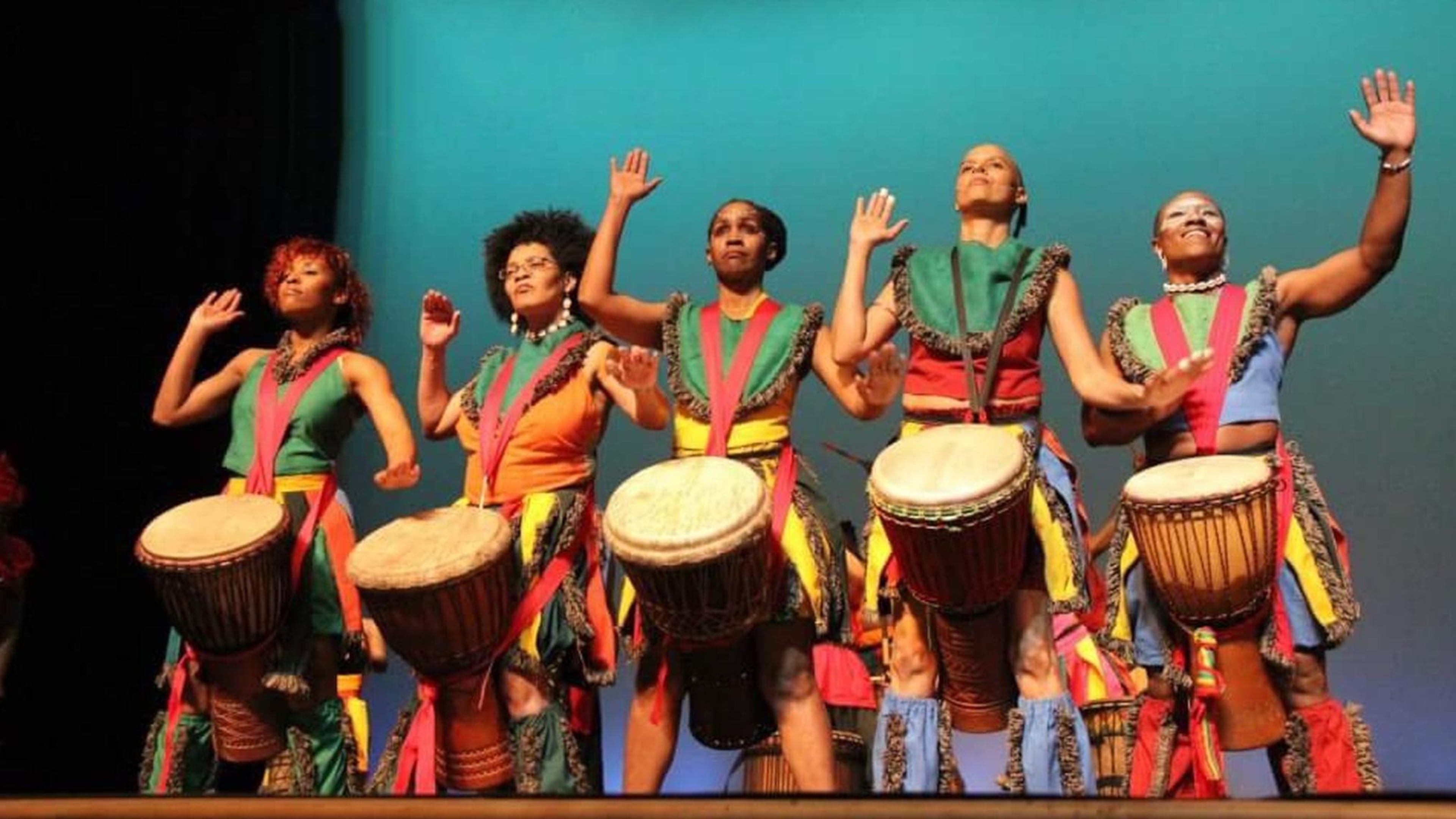A musical passion

Female African drummers are a rare sight even now.
Twenty-five years ago, when Atlanta's own all-female African drum, dance and vocal ensemble, Giwayen Mata, started, it was even rarer. But that didn't keep 10 women from gathering around their passion for the African drum, dance and culture to do it anyway. To honor that milestone, Giwayen Mata will host the Elephant Leaders of Women Awards Reception and concert, Tafiya — The Journey, "Honoring Our Past and Actuating Our Future," July 14 at the Ray Charles Performing Arts Center.
Omelika Kuumba, who serves as Giwayen Mata’s artistic director today, was among those 10 women founders.
Attracted to rhythms since she was a kid growing up in Brooklyn, N.Y., Kuumba often beat on things around the house. After coming to Atlanta to attend Spelman College, as her mother and her grandmother had done before her, she got her chance. When the drummer for the African dance classes she attended was late or didn’t show up, Kuumba was eager to fill in. That eagerness earned her private lessons and began her journey to master the drum.

Along the way, she found other women who shared a similar passion. At first, they didn’t call themselves a company. But as they drummed in the parks, they got requests for private performances. That demand convinced them to make it official. But they needed a name and a good one.
“The name means ‘elephant women,’” shared Kuumba, who has also been on Spelman’s dance faculty for many years, via phone. “One of our founders is from Nigeria, and when we were thinking of a name, she spoke with her aunt, who explained to her that the giwayen mata are women who lead women’s organizations. And so at the time, in 1993, when we first got started, we were among the first women to play djembe drums professionally so as such we were leaders, artistic leaders, and so her aunt said it was a good name for us and we thought so, too.”
Everybody wasn’t excited for women to play the djembe, the popular hand-carved, goblet-shaped drum covered in animal skin and draped in ropes. According to Kuumba, traditionally, that drum, which is one of many they play, originates out of “the Mali Republic, the Mali Empire, who comprises Guinea, Senegal, Gambia, Ghana, that West African area … was initially played by ordained priests.” In the 1970s, the djembe became more secular, but it was still rarely drummed by women even by the early 1990s.
“The biggest thing about the climate for us was that we were women playing the djembe drum and so there were some people who were very excited about it and there were some people who were feeling like we weren’t supposed to be playing that drum because it was a male instrument,” said Kuumba.

That pushback never deterred them. “We were able to feel what it was like to find your passion and live in your passion no matter what other people may think.”
And neither did a lack of money. Over the past 25 years, the company, which even appeared on the popular TV show “America’s Got Talent” in 2012, has largely survived through a lot of self-sacrificing. Ticket sales have rarely covered the work and preparation that can last from six to eight months for major performances, and there have been few grants. Ultimately what’s kept the Giwayen Mata, which counts three original founders (Sarahn Henderson, Gail V. Zuri Jordan and Kuumba) on its current roster of roughly 20 and nearly 80 members throughout their history, shared Kuumba, is “the love that we have for what we do and the camaraderie that we have amongst each other.”
EVENT PREVIEW
Giwayen Mata presents Elephant Leaders of Women Awards Reception and Tafiya – The Journey, “Honoring Our Past and Actuating Our Future” concert
6:30-10:30 p.m. July 14. Ray Charles Performing Arts Center, 900 West End Ave. SW, Atlanta. giwayenmata.org.
IN OTHER NEWS:

